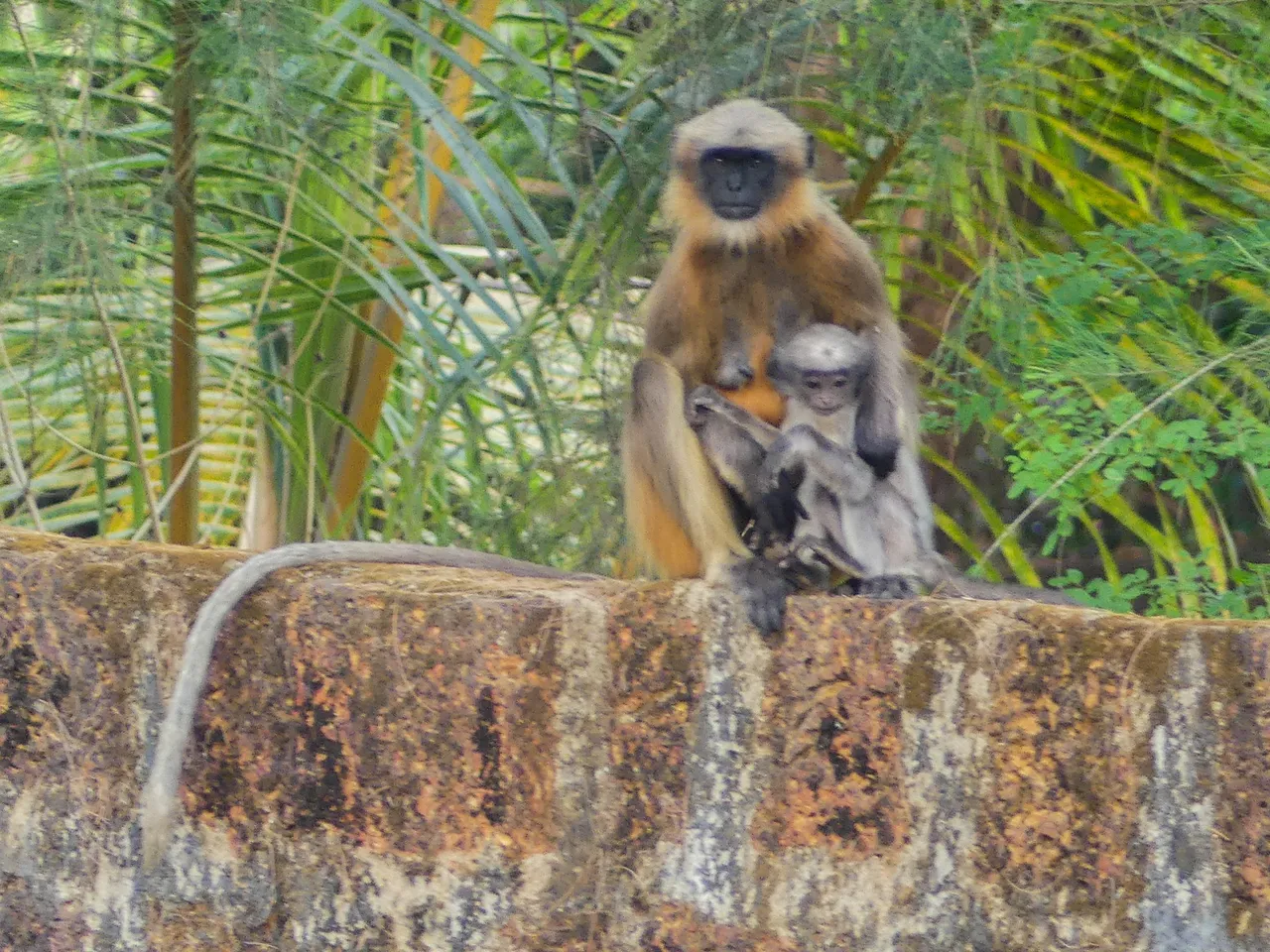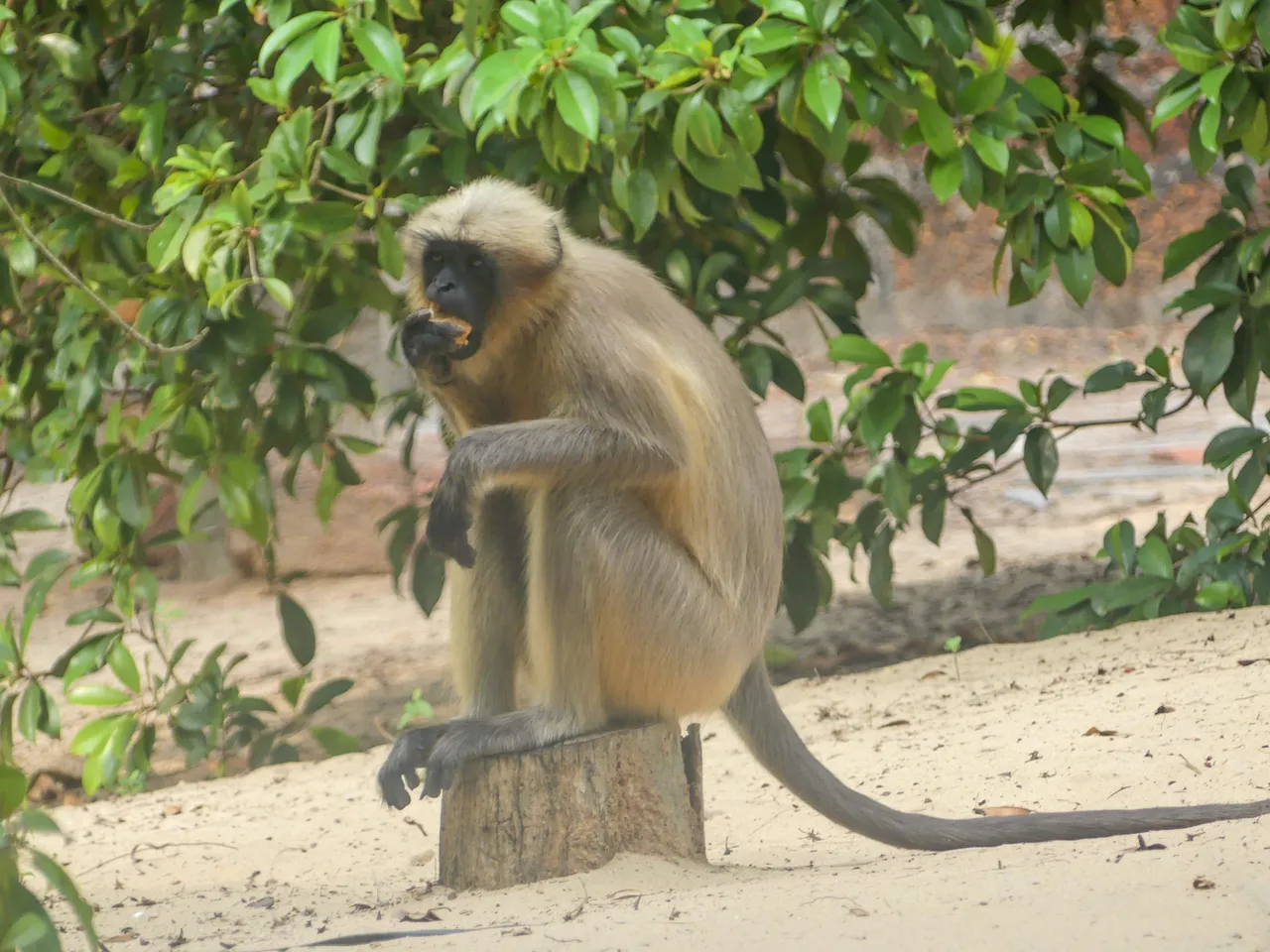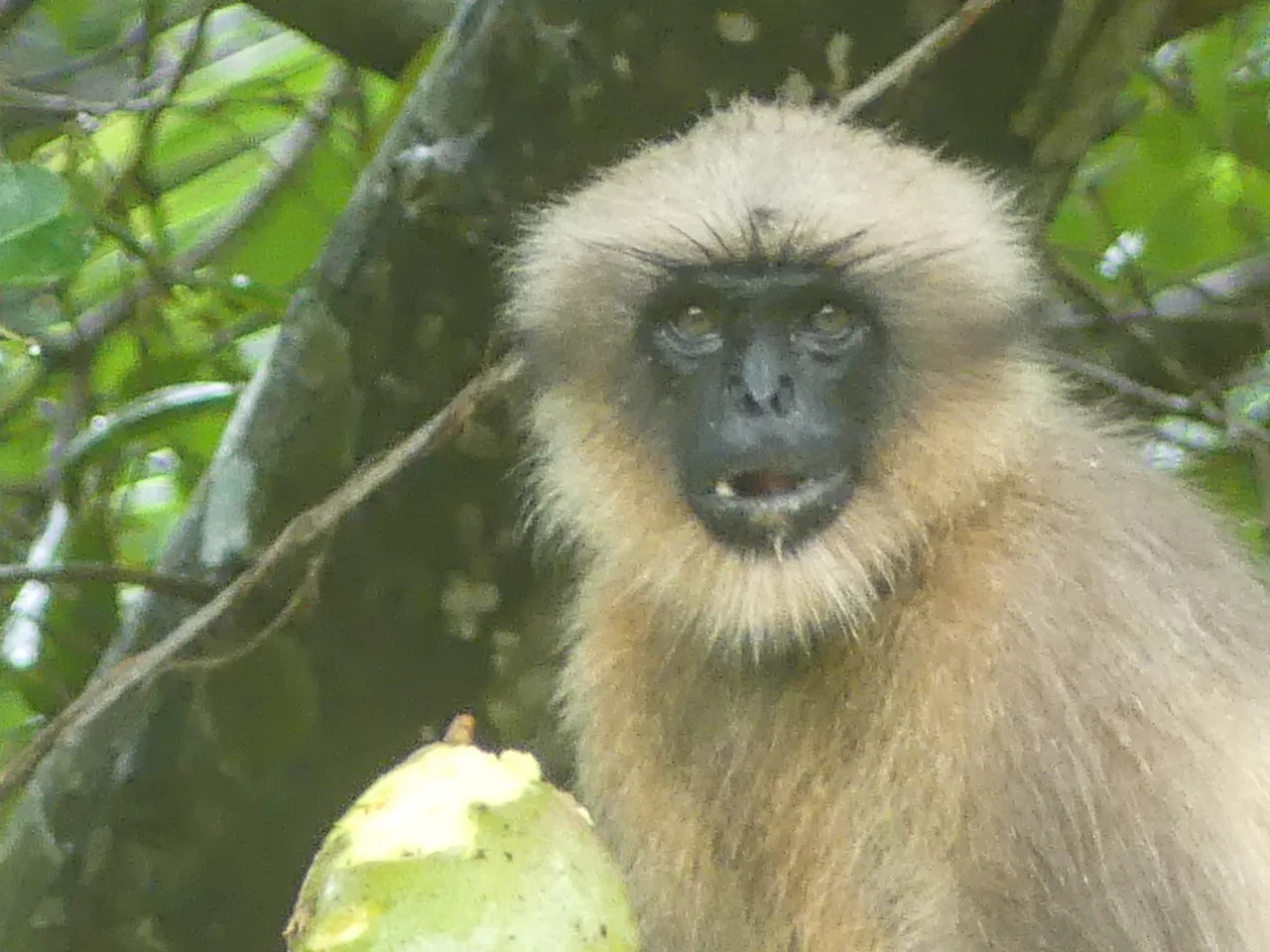
this photo was taken from our house in coastal maharashtra, india. on our plot we have coconut, cashew and fruit trees which attract lots of birds, insects, and a number of other animals. among the regular visitors are families of black faced monkeys, a species of grey langurs most likely black footed grey langurs (Semnopithecus hypoleucos).
they run, jump and climb all over the place including our house. they help themselves to whatever fruit is available, most often the chickoos, otherwise known as sapotas or sapodillas, which are always in season. but there is a system to their arrival. the first to show up is one or more young adult scouts which check out the area to make sure it is safe. in our house it is always safe. then the large male or sometimes males arrive accompanied by females and youngsters. they spread out in the different trees and are welcome to feed. from their different posts they are always on the lookout for any danger if there happen to be any the last to arrive are the females carrying their youngest. they are also the first to leave and most shy and cautious.
so while it is common to observe the youngsters and the adults, we seldom get the opportunity to photograph a mother with child. in the event we do it is only for a few seconds before they hurry away as soon as we are spotted. it is a different matter with the agile youngsters and the dominant male. if they climb on our 2 story house with a roof terrace i pretend to chase them away, carrying a stone in one hand and a camera in the other and shouting loud noises. but we all know i cannot catch them so they play around a little. i try to take some photos if i get the chance. if they spend too much time on the terrace i raise the hand with the stone and they scurry off in different directions only to regroup away from the house later on.

*this photo is taken through the side window. the monkey is just a few meters from our house. from this and other trees they jump onto our roof *
there is no way i could hit them if i tried but they jump back into the trees just in case. sometimes they stick around in the trees, presumably if they are really hungry. we don't mind them eating chickoos. there is no point in trying to grow bananas and papaya plants get eaten long before any fruit develops but mango season is different. there aren't many mangoes on the trees because the soil is pure sand. so the few mangoes we do get we prefer to enjoy ourselves. the monkeys prefer them to the chickoos so each year they make sure to be around for mango season. if we didn't make any effort to keep them away there would be no mangoes at all for us, so i put on a bigger show to scare them off.
the youngsters scurry up the high suru trees out of reach of any stones i might toss their way but the dominant males try to make a stand, making threatening gestures back at me as i raise the camera to my face or my hand with a stone in it. i never approach quickly or too close so it always ends with the monkeys retreating. they know their will be plenty of safer opportunities at dawn the next day or when we leave to go the beach or the market or wherever. and indeed they do get their share of mangoes without ever being in any danger. and when thy do get a mango they never give it up or leave it behind

so while they come to our place to feed we are still very happy to have them. it's just that we have to make pretend that we don't want them there. they know that with us it is a game and they are not in danger and they in turn are very happy to play along in this game where everybody wins.
